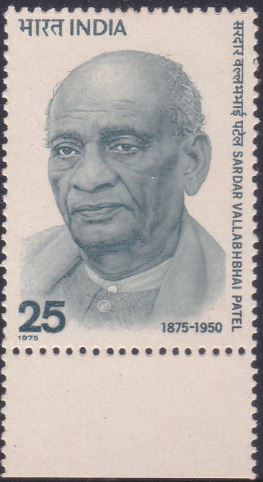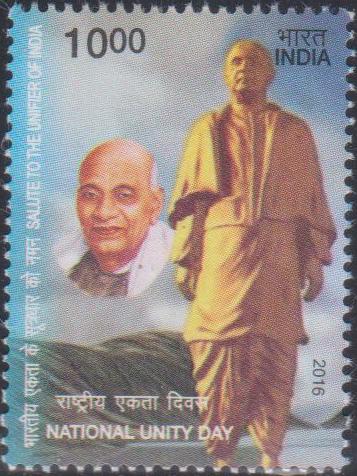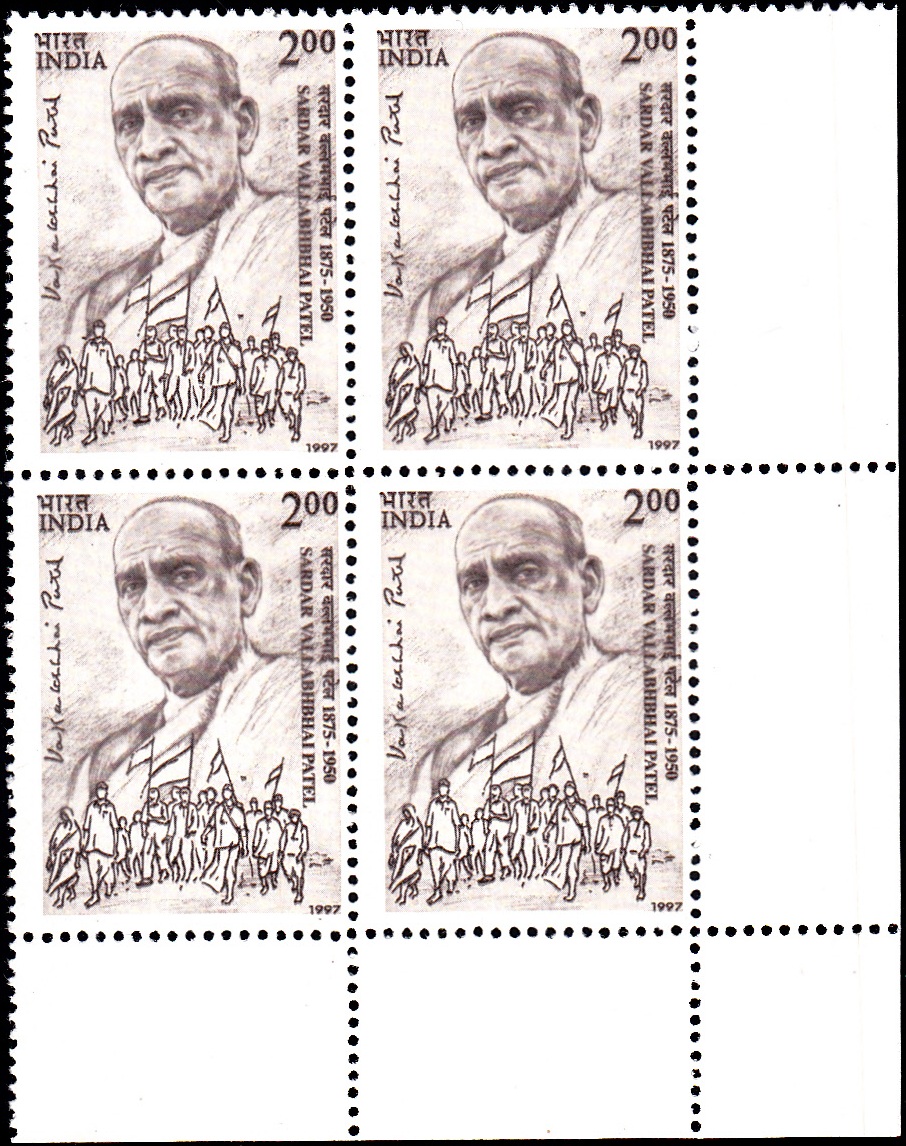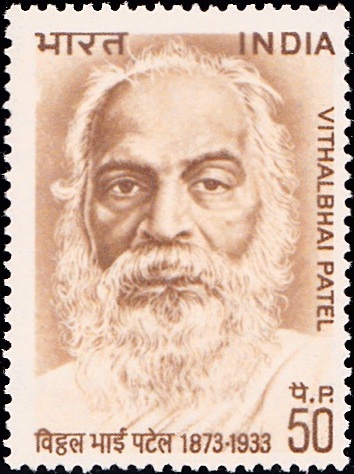
Vallabhbhai Patel 1965
A commemorative postage stamp on ‘Bismarck of India‘ Sardar Vallabh Bhai Patel, 1st Minister of Home Affairs of India (1947-50) :

 Issued by India
Issued by India
Issued on Sunday, Oct 31, 1965
Issued for : The Indian Posts and Telegraphs Department feels honoured to issue a special commemorative stamp on October 31, 1965, on which day the nation will observe the nineteenth anniversary of Sardar Vallabhbhai Patel.
Type : Stamp, Mint Condition
Colour : Suede Grey
Denomination : 0.15
Overall Size : 3.3 X 2.9 cms.
Printing Size : 2.99 X 2.52 cms.
Perforation : 13½ x 14
Watermark : Printed on unwatermarked paper
Number Printed : 2 million
Set : 42 Stamps per issue sheet
Printing Process : Photogravure
Designed and Printed at : India Security Press
Name : Vallabhbhai Patel
Born on Oct 31, 1875 at Nadiad, Kheda, Gujarat, India
Died on Dec 15, 1950 at Mumbai, India
About :
- Vallabhbhai Patel was born on October 31, 1875 at Nadiad in a typical peasant family of Gujarat. He grew up as the fourth in a family of six children. As a boy, he went to the local school, but could also ‘plough the land straight and deep.’ Like his brother, Vithalbhai, he chose the legal profession, but practiced independently as a successful district pleader till 1910, when he left for England to qualify as a barrister-at-law. Married at 16, he lost his wife when he was barely 33, after she had born him a daughter and a son.
- On return from England, he built up a flourishing practice at Ahmedabad as a criminal lawyer. It so happened that Gandhiji, who returned from South Africa in 1915, was invited to preside over the Godhra Session of the Gujarat Sabha, in 1917. Vallabhbhai Patel was its Secretary. The two men met never to part again. Sardar Patel was elected President of the Ahmedabad Municipality in 1924 by which time he had given up his lucrative practice at the bar to devote his entire time to public service. He galvanised the Gujarat provincial Congress Committee into a powerful unit of the National Congress, to which he was from then on, a tower of strength. He was elected President of the Congress at the Karachi Session in 1931. He suffered incarceration on several occasions and spent long years in prison fighting for the freedom of the country. His health broke down but his spirit remained undaunted and when India became independent he tackled the many problems which beset the country with tremendous energy and zeal. Indeed he proved to be one of the most outstanding statesmen of the century. He died in harness as the Home Minister of free India on December 15, 1950.
- The ideal of a free, strong, united India ever remained a consuming passion with this practical realist. A man of unbending will, his thought and action revolved round the life and example of Mahatma Gandhi. A powerful organizer and an unerring judge of men, he never failed to inspire confidence in the people. Of inflexible purpose and endowed with a statesmanlike clarity of thought, he had a way with matters of the State. If he had an iron hand he used it to hammer out a new nation, to restore peace and to strengthen unity. His indomitable will was born out of intense self-discipline. Forthright and fearless, he always knew his mind. Above all, he was a man of action without whom the history of Modern India might well have been different.
- His finest hour was when he accomplished the integration of the Indian States with the Union. For him, integration meant not only accession by the rulers but also transfer of their power to the people. India has been unified as never before, and the saga of this achievement has passed into history.
- His country was his first love and in the words of his daughter, ‘To the last, he was thinking of the nation‘. For all the toughness of his spirit and the rock-like firmness of his decision, one could yet say :
- His life was gentle; and the elements
So mixed in him that Nature might stand up
And say to all the world, ‘This was a man’.
- His life was gentle; and the elements








[…] and published the Satyagraha Patrika. When Mahatma Gandhi gave the call for Non-cooperation, Vallabhbhai joined the movement by giving up his lucrative practice at the bar. In 1923, he, along-with his […]
[…] one occasion great leaders of the nation like Pandit Jawaharlal Nehru, Dr. Rajindra Prasad, Sardar Vallabh Bhai Patel complimented him for his self-less service. He was the inspiration of many missionaries in the […]